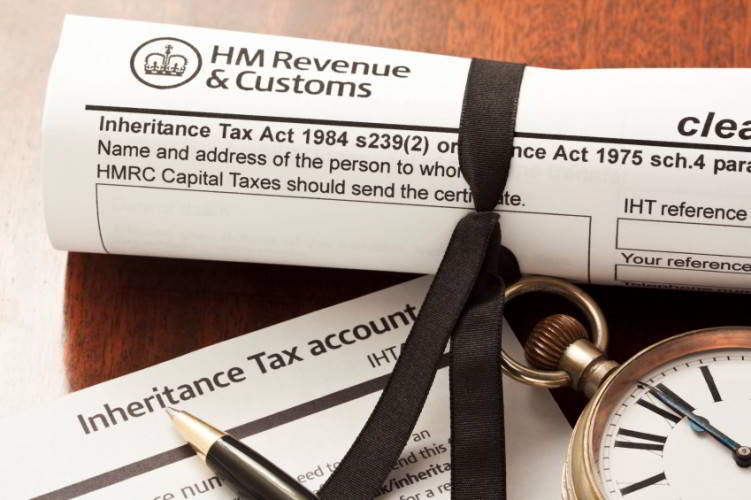None of us wants to pay more tax than we have to. But revisions to the Finance Bill 2013 mean you may need to look again at your inheritance tax planning, especially if you own property, either as a private home or a rental investment, or have other assets in the UK. As our clients own at least one buy-to-let property, and many have an extensive portfolio of property investments in London, our guide to the changes being introduced to limit the deduction for liabilities, should be useful.
Inheritance Tax – The Basics
 Inheritance tax (IHT) is generally payable on the value of a person’s estate in excess of £325,000 when they die. The current rate of inheritance tax is 40%.
Inheritance tax (IHT) is generally payable on the value of a person’s estate in excess of £325,000 when they die. The current rate of inheritance tax is 40%.
If you live in the UK, you’ll pay UK inheritance tax on your worldwide assets. If you live outside the UK, you’ll pay inheritance tax on your UK assets such as UK property investments. When someone’s estate is valued, you usually take the value of the assets and deduct any debts.
The Finance Bill 2013 – Revisions Limiting the Deduction for Liabilities
Under the revisions in the Finance Bill 2013, any loan deduction must be repaid to the creditor unless there is any commercial reason not to. This is to avoid artificially created debts designed to reduce the estate value and the liability to inheritance tax.
There are reliefs available such as business property relief, agricultural relief and woodlands relief.
Under the new revisions, any debt incurred to acquire assets on which any of the above reliefs apply will need to be offset against the value of those assets. If there is an excess liability then it will be allowable as a deduction against the estate in general.
Property outside the UK belonging to a non-UK domiciled individual is known as “excluded property” and is not chargeable to inheritance tax. Again under the Finance Bill revisions, any debt incurred to acquire excluded property will not be considered an allowable deduction.
A Typical Example
 A non UK domiciled individual owns a UK property valued at £5m. He initially borrowed £500,000 to purchase the property from a non UK domiciled relative but has no plans to repay it. He then borrows £2.2m from a bank and secures the loan against the UK property.
A non UK domiciled individual owns a UK property valued at £5m. He initially borrowed £500,000 to purchase the property from a non UK domiciled relative but has no plans to repay it. He then borrows £2.2m from a bank and secures the loan against the UK property.
With the £2.7m funds he buys a UK trading business for £1m and a property outside the UK for £1.2m
When the individual dies, the property has a value of, say, £8m, the business has a value of £2m and nothing has been paid off against any of the loans.
Under the Old Rules
Previously on death the value of the estate chargeable to inheritance tax would be:
- Property – £8m
- Business – £2m
- Less business property relief – £2m
- Less outstanding debt – £2.7m
Net Estate Value – £5.3m
Under the New Rules
Under the new rules, the amount of loan used to purchase the property outside the UK would not be an allowable deduction, the loan to purchase the business would need to be offset against the value of the business, and, as there is no plan to repay the loan to the family member that would also not be an allowable deduction.
The value of the estate chargeable to inheritance tax under the new rules would be:
- Property – £8m
- Less repayable debt used to acquire asset – £0
- Business – £2m
- Less debt used to acquire asset – £1m
- Net asset value – £1m
- Less business property relief – £1m
Net Estate Value – £8m
There is no inheritance tax on the first £325,000 of the net estate value. However the balance of £7.675m would be taxable at 40%. The effect of the change in this example would mean an additional £1.08m of inheritance tax will be due.
This is a complex subject and investors must take these new revisions into consideration when looking at their inheritance tax planning. Benham & Reeves Estate Agents work with specialist tax advisors who can assist you with this.
International offices
















